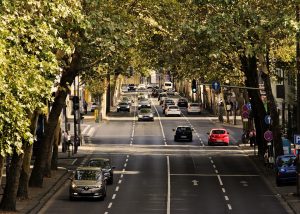
Commuting is costly everywhere in America but when it comes to fines and fees, it seems like Chicago is getting the brunt of it. Chicago has been infamous for its red-light cameras with one individual – who had even held the role of an executive transportation official – serving jail time for bribetaking with a red light camera firm.
But it’s done been positive for the administration and infrastructure sector of Chicago. Over the last ten years it’s gotten even heavier. As one report pointed out:
“Red-light cameras in the Chicago suburbs have been a gold mine for local governments and a headache for drivers. Red-light camera revenue outside Chicago city limits drove almost all of that increase, with $56.6 million generated in 2018 compared with $5.4 million in 2008.”
Now, lawmakers are looking to ban red light cameras. But this would lead to “budget holes” in Chicago as well as other cities.Chicago and many suburbs with significant budget holes. Given that Chicago has traditionally been Illinois’ “biggest beneficiary” of red light cameras, there would be huge implications. In 2018 the city brought in $56 million just in fines.
There is a lot of infrastructure work that needs to be undertaken and the monies are often used for that. Chicago and its five collar counties have 2,720 miles of roads and almost 1,500 bridges. According to executive vice president of the Illinois Asphalt Pavement Association and member of the Transportation for Illinois Coalition Kevin Burke, most of the money is being used for transit in the Chicago metro area and in general there’s a lot of work that needs doing. At the end of the day roads need maintenance.
State Rep. Brad Halbrook, R-Shelbyville pointed out that “it’s good to see that there is some attention, finally, to some long overdue projects that are in need of desperate repair.”

